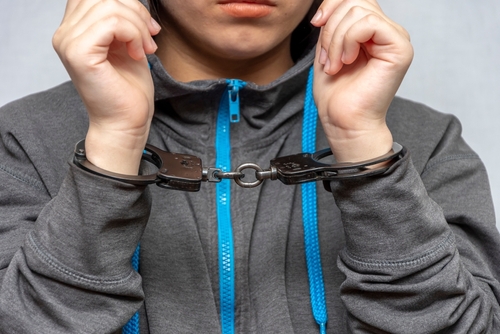Understanding Juvenile Drug Offenses
Juvenile drug offenses in Texas encompass a range of illegal activities involving controlled substances. These can include possession, distribution, and use of drugs, including marijuana, prescription drugs, and other illegal substances. It is crucial to understand that the juvenile justice system operates differently from the adult court system. The focus is often on rehabilitation rather than punishment, which can significantly impact the outcomes for young offenders.
When a minor is charged with a drug-related crime, the consequences can be severe. A juvenile can face a criminal record, detention, or even harsher penalties if the case is treated as a serious offense. The legal ramifications of juvenile drug crimes can affect a child’s future, including educational opportunities and employment prospects.
Engaging a knowledgeable juvenile drug crimes lawyer is essential. A skilled juvenile criminal attorney can navigate the complexities of the juvenile justice system and advocate for the best possible outcome for your child. They can help you understand the specific charges your child is facing and outline the potential legal implications.
It’s also important to recognize the role of treatment programs and alternative sentencing options available for juvenile offenders. These can provide pathways for rehabilitation instead of traditional punitive measures. A juvenile drug crimes attorney can guide families through these options, ensuring that the focus remains on the child’s future and well-being.
In summary, understanding juvenile drug offenses is vital for parents and guardians. The right legal representation can make all the difference in how a case is handled and what outcomes are achieved. If your child is facing drug charges, seeking assistance from a dedicated juvenile drug crimes lawyer is a crucial first step.
What Constitutes a Juvenile Drug Crime?
Juvenile drug crimes encompass a range of illegal activities involving controlled substances by minors. In Texas, these offenses can include drug possession, distribution, and manufacturing. The law takes a firm stance on drug-related activities, even when committed by juveniles.
Possession of illegal substances, such as marijuana, cocaine, or prescription drugs without a valid prescription, falls under this category. If a minor is found with a small quantity of a controlled substance, they could face serious consequences. Distribution or intent to sell drugs is also a significant concern. Even sharing drugs with peers can lead to severe legal repercussions.
The Texas juvenile justice system treats these offenses seriously. A juvenile found guilty of drug crimes may face penalties ranging from probation to detention in a juvenile facility. The age of the minor, the type of drug involved, and the circumstances surrounding the offense all play crucial roles in determining the outcome.
Understanding what constitutes a juvenile drug crime is vital for parents and guardians. It helps them navigate the complexities of the legal system and advocate effectively for their child’s future. If you suspect your child is involved in drug-related activities, seeking legal assistance promptly is essential. An experienced juvenile drug crimes attorney can guide you through this challenging process and work toward the best possible outcome for your child.
Juvenile Drug Crime Process in Texas
Navigating the juvenile drug crime process in Texas can be challenging for both minors and their families. Understanding the steps involved is crucial for effectively addressing the situation.
When a juvenile is accused of drug offenses, the process typically begins with an investigation by law enforcement officers. This may involve a search of the minor’s property or person, often based on probable cause. If the police find illegal substances, they may arrest the juvenile, leading to formal charges.
Once charges are filed, the case enters the juvenile justice system. This system operates differently from adult courts, focusing on rehabilitation rather than punishment. A detention hearing usually occurs shortly after the arrest. Here, a judge will determine whether the juvenile should remain in custody or be released while awaiting trial.
The next step is the adjudication phase, where the court examines the evidence. This may involve hearings where the prosecution presents its case, and the defense attorney challenges the evidence. If the evidence is insufficient, the charges may be dismissed.
If the court finds the juvenile guilty of drug crimes, various outcomes are possible. This can range from informal disposition, like community service, to more serious consequences, such as probation or placement in a rehabilitation program. The goal is to address the underlying issues, such as drug addiction or delinquent conduct, while safeguarding the child’s future.
Throughout this process, having a knowledgeable criminal defense attorney is essential. They can guide families through each step, ensuring that the juvenile’s rights are protected and advocating for the best possible outcome. Engaging legal support early can make a significant difference in the trajectory of the case.
Potential Outcomes for Juvenile Drug Offenses
When a minor is charged with a juvenile drug crime in Texas, the consequences can vary significantly based on the specifics of the case. Understanding these potential outcomes is crucial for parents and guardians as they navigate the juvenile justice system.
- Diversion Programs: For first-time offenders or less severe drug offenses, the court may offer diversion programs. These programs often include counseling, community service, or educational sessions about drug use. Successful completion can lead to the charges being dismissed, allowing the juvenile to avoid a criminal record.
- Probation: If the offense is more serious, the court may impose probation. This means the juvenile must adhere to specific conditions set by the court, such as regular check-ins with a probation officer and participation in treatment programs. Violating probation terms can lead to harsher penalties.
- Juvenile Detention: In cases involving more serious drug offenses, a juvenile may face detention in a juvenile facility. This is typically reserved for repeat offenders or those charged with drug distribution or possession of larger quantities of illegal substances.
- Deferred Prosecution: In some instances, the court may allow for deferred prosecution. This means that the juvenile can avoid formal charges if they meet certain conditions, such as completing a treatment program or staying out of legal trouble for a specified period.
- Criminal Record: A conviction for a juvenile drug crime can lead to a permanent juvenile record. This can have long-term implications, affecting future educational and employment opportunities. It’s essential to consider strategies to mitigate this risk, such as expungement options once the juvenile reaches adulthood.
- Court-Ordered Treatment: The court may also mandate treatment programs for drug addiction. These programs aim to address the underlying issues related to substance use and can be a critical step in the rehabilitation process.
Each case is unique, and the outcome depends on various factors, including the severity of the offense, the juvenile’s prior record, and the effectiveness of the defense strategies employed. Engaging a knowledgeable criminal defense attorney can significantly impact the direction of the case and the subsequent outcomes.
Defense Strategies for Juvenile Drug Charges
When facing juvenile drug charges, having a skilled juvenile drug crimes attorney can make a significant difference. At Cowboy Law Group, we understand the nuances of juvenile law and the impact a drug offense can have on a young person’s future. Our defense strategies are crafted to address the unique circumstances surrounding each case.
One effective approach is to challenge the evidence presented by law enforcement. This includes examining the legality of the search and seizure process. If police officers did not follow proper procedures, we can argue for the dismissal of evidence, which may weaken the prosecution’s case.
Another strategy involves exploring alternative sentencing options. The juvenile justice system often prioritizes rehabilitation over punishment. Our team can advocate for treatment programs instead of harsh penalties, focusing on the underlying issues that may have led to the drug offense, such as drug addiction or peer pressure.
Additionally, we work closely with families to provide support and guidance throughout the legal process. Understanding the emotional and psychological aspects of juvenile drug crimes is essential. Our goal is to ensure that the child’s future is prioritized and that they receive the necessary resources to overcome their challenges.
With our experience and commitment, we aim to achieve the best possible outcomes for our clients. Whether it’s negotiating a plea deal or preparing for a jury trial, we are dedicated to defending the rights of young individuals facing drug charges in Texas.
Alternative Sentencing Options for Juvenile Offenders
In Texas, the juvenile justice system aims to rehabilitate rather than punish. For young individuals facing drug-related charges, alternative sentencing options can provide a path towards recovery and a brighter future. These alternatives focus on education, treatment, and community service rather than traditional punitive measures.
One common option is deferred prosecution, which allows juveniles to avoid formal charges if they complete certain requirements. This might include attending counseling or treatment programs for drug addiction. Successfully fulfilling these obligations can lead to the dismissal of charges, helping to prevent a juvenile record.
Another alternative is probation, which can involve regular check-ins with a probation officer, mandatory drug testing, and participation in educational programs. This option encourages accountability while providing the necessary support for rehabilitation.
Community service is also a viable alternative. Courts may require juvenile offenders to engage in community service hours as a way to give back and learn responsibility. This not only benefits the community but also allows the young person to reflect on their actions.
Engaging in treatment programs specifically designed for drug offenses can significantly impact a juvenile’s future. These programs focus on addressing the root causes of drug use and provide essential tools for making healthier choices.
Overall, the goal of alternative sentencing is to guide young offenders towards positive change. By opting for these alternatives, the juvenile justice system seeks to reduce recidivism and promote a successful transition into adulthood. If you or a loved one is facing juvenile drug charges, it’s essential to explore these options with a knowledgeable juvenile drug crimes attorney who can advocate for the best possible outcome.
Why Choose Cowboy Law Group?
When facing juvenile drug charges, choosing the right legal representation is crucial. At Cowboy Law Group, we bring a unique blend of experience and commitment to defending young individuals accused of drug offenses. Our team understands the complexities of the juvenile justice system and works tirelessly to protect the rights of our clients.
We prioritize a personalized approach tailored to the specific circumstances of each case. Our juvenile drug crimes attorneys are dedicated to ensuring that your child’s future remains bright, free from the long-term consequences of a criminal record. We are known for our legal grit and cowboy spirit, which drive us to advocate fiercely for the best possible outcomes.
Our firm is built on values of honesty and integrity. We take the time to listen to your concerns and provide clear guidance throughout the legal process. We are available 24/7, ensuring that you have access to support when you need it most.
Choosing Cowboy Law Group means choosing a criminal defense team that is committed to your child’s rights and well-being. We understand that juvenile drug charges can be overwhelming, and we are here to help you navigate this challenging time with confidence. Let us fight to protect your child’s future.
Schedule a Free Consultation with Cowboy Law Group
If your child is facing juvenile drug charges, timely legal support is crucial. At Cowboy Law Group, we understand the complexities of juvenile drug offenses and are here to provide guidance. Our experienced juvenile drug crimes attorneys are dedicated to protecting your child’s future and navigating the juvenile justice system effectively.
We offer a free consultation to discuss your case and outline potential defense strategies. This initial meeting allows you to ask questions and understand the legal process without any financial commitment. We believe that informed clients make the best decisions regarding their legal matters.
Don’t wait until it’s too late. Contact Cowboy Law Group today to schedule your free consultation. Let us help you secure the best possible outcome for your child in these challenging circumstances.






